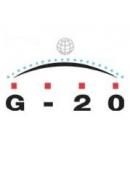 G20 major economies
G20 major economies - a group of finance ministers and central bank governors from 20 economies: 19 of the world's largest national economies, plus the European Union (EU). It also met twice at heads-of-government level, in November 2008 and again in April 2009. Collectively, the G-20 economies comprise 85% of global gross national product, 80% of world trade (including EU intra-trade) and two-thirds of the world population.
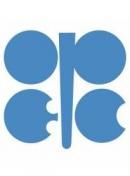 OPEC
OPEC - a cartel of twelve countries made up of Algeria, Angola, Ecuador, Iran, Iraq, Kuwait, Libya, Nigeria, Qatar, Saudi Arabia, the United Arab Emirates, and Venezuela. The cartel has maintained its headquarters in Vienna since 1965, and hosts regular meetings among the oil ministers of its Member Countries. Indonesia withdrew its membership in OPEC in 2008 after it became a net importer of oil, but stated it would likely return if it became a net exporter in the world again.
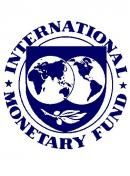 International Monetary Fund (IMF)
International Monetary Fund (IMF) - an international organization that oversees the global financial system by following the macroeconomic policies of its member countries, in particular those with an impact on exchange rates and the balance of payments. It is an organization formed to stabilize international exchange rates and facilitate development. It also offers highly leveraged loans mainly to poorer countries. Its headquarters are located in Washington, D.C., USA.
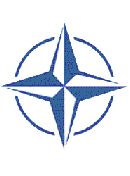 NATO
NATO - is a military alliance established by the signing of the North Atlantic Treaty on 4 April 1949. The NATO headquarters are in Brussels, Belgium, and the organization constitutes a system of collective defence whereby its member states agree to mutual defense in response to an attack by any external party.
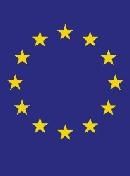 European Union
European Union - is an economic and political union of 27 member states, located primarily in Europe. Committed to regional integration, the EU was established by the Treaty of Maastricht on 1 November 1993 upon the foundations of the pre-existing European Economic Community. With almost 500 million citizens, the EU combined generates an estimated 30% share (US$18.4 trillion in 2008) of the nominal gross world product.
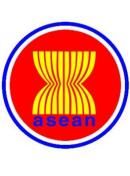 ASEAN
ASEAN - is a geo-political and economic organization of 10 countries located in Southeast Asia, which was formed on 8 August 1967 by Indonesia, Malaysia, the Philippines, Singapore and Thailand. Since then, membership has expanded to include Brunei, Burma (Myanmar), Cambodia, Laos, and Vietnam. Its aims include the acceleration of economic growth, social progress, cultural development among its members, the protection of the peace and stability of the region, and to provide opportunities for member countries to discuss differences peacefully.
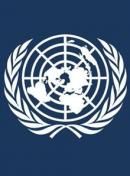 The United Nations (UN)
The United Nations (UN) - an international organization whose stated aims are facilitating cooperation in international law, international security, economic development, social progress, human rights, and the achieving of world peace. The UN was founded in 1945 after World War II to replace the League of Nations, to stop wars between countries, and to provide a platform for dialogue. It contains multiple subsidiary organizations to carry out its missions.
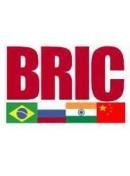 BRIC or BRICs
BRIC or BRICs - is an acronym that refers to the fast-growing developing economies of Brazil, Russia, India and China. The acronym was first coined and prominently used by Goldman Sachs in 2001. Goldman Sachs argued that, since they are developing rapidly, by 2050 the combined economies of the BRICs could eclipse the combined economies of the current richest countries of the world. The four countries, combined, currently account for more than a quarter of the world's land area and more than 40% of the world's population.
 G20 major economies - a group of finance ministers and central bank governors from 20 economies: 19 of the world's largest national economies, plus the European Union (EU). It also met twice at heads-of-government level, in November 2008 and again in April 2009. Collectively, the G-20 economies comprise 85% of global gross national product, 80% of world trade (including EU intra-trade) and two-thirds of the world population.
G20 major economies - a group of finance ministers and central bank governors from 20 economies: 19 of the world's largest national economies, plus the European Union (EU). It also met twice at heads-of-government level, in November 2008 and again in April 2009. Collectively, the G-20 economies comprise 85% of global gross national product, 80% of world trade (including EU intra-trade) and two-thirds of the world population. OPEC - a cartel of twelve countries made up of Algeria, Angola, Ecuador, Iran, Iraq, Kuwait, Libya, Nigeria, Qatar, Saudi Arabia, the United Arab Emirates, and Venezuela. The cartel has maintained its headquarters in Vienna since 1965, and hosts regular meetings among the oil ministers of its Member Countries. Indonesia withdrew its membership in OPEC in 2008 after it became a net importer of oil, but stated it would likely return if it became a net exporter in the world again.
OPEC - a cartel of twelve countries made up of Algeria, Angola, Ecuador, Iran, Iraq, Kuwait, Libya, Nigeria, Qatar, Saudi Arabia, the United Arab Emirates, and Venezuela. The cartel has maintained its headquarters in Vienna since 1965, and hosts regular meetings among the oil ministers of its Member Countries. Indonesia withdrew its membership in OPEC in 2008 after it became a net importer of oil, but stated it would likely return if it became a net exporter in the world again.  International Monetary Fund (IMF) - an international organization that oversees the global financial system by following the macroeconomic policies of its member countries, in particular those with an impact on exchange rates and the balance of payments. It is an organization formed to stabilize international exchange rates and facilitate development. It also offers highly leveraged loans mainly to poorer countries. Its headquarters are located in Washington, D.C., USA.
International Monetary Fund (IMF) - an international organization that oversees the global financial system by following the macroeconomic policies of its member countries, in particular those with an impact on exchange rates and the balance of payments. It is an organization formed to stabilize international exchange rates and facilitate development. It also offers highly leveraged loans mainly to poorer countries. Its headquarters are located in Washington, D.C., USA.  NATO - is a military alliance established by the signing of the North Atlantic Treaty on 4 April 1949. The NATO headquarters are in Brussels, Belgium, and the organization constitutes a system of collective defence whereby its member states agree to mutual defense in response to an attack by any external party.
NATO - is a military alliance established by the signing of the North Atlantic Treaty on 4 April 1949. The NATO headquarters are in Brussels, Belgium, and the organization constitutes a system of collective defence whereby its member states agree to mutual defense in response to an attack by any external party.  European Union - is an economic and political union of 27 member states, located primarily in Europe. Committed to regional integration, the EU was established by the Treaty of Maastricht on 1 November 1993 upon the foundations of the pre-existing European Economic Community. With almost 500 million citizens, the EU combined generates an estimated 30% share (US$18.4 trillion in 2008) of the nominal gross world product.
European Union - is an economic and political union of 27 member states, located primarily in Europe. Committed to regional integration, the EU was established by the Treaty of Maastricht on 1 November 1993 upon the foundations of the pre-existing European Economic Community. With almost 500 million citizens, the EU combined generates an estimated 30% share (US$18.4 trillion in 2008) of the nominal gross world product.  ASEAN - is a geo-political and economic organization of 10 countries located in Southeast Asia, which was formed on 8 August 1967 by Indonesia, Malaysia, the Philippines, Singapore and Thailand. Since then, membership has expanded to include Brunei, Burma (Myanmar), Cambodia, Laos, and Vietnam. Its aims include the acceleration of economic growth, social progress, cultural development among its members, the protection of the peace and stability of the region, and to provide opportunities for member countries to discuss differences peacefully.
ASEAN - is a geo-political and economic organization of 10 countries located in Southeast Asia, which was formed on 8 August 1967 by Indonesia, Malaysia, the Philippines, Singapore and Thailand. Since then, membership has expanded to include Brunei, Burma (Myanmar), Cambodia, Laos, and Vietnam. Its aims include the acceleration of economic growth, social progress, cultural development among its members, the protection of the peace and stability of the region, and to provide opportunities for member countries to discuss differences peacefully.  The United Nations (UN) - an international organization whose stated aims are facilitating cooperation in international law, international security, economic development, social progress, human rights, and the achieving of world peace. The UN was founded in 1945 after World War II to replace the League of Nations, to stop wars between countries, and to provide a platform for dialogue. It contains multiple subsidiary organizations to carry out its missions.
The United Nations (UN) - an international organization whose stated aims are facilitating cooperation in international law, international security, economic development, social progress, human rights, and the achieving of world peace. The UN was founded in 1945 after World War II to replace the League of Nations, to stop wars between countries, and to provide a platform for dialogue. It contains multiple subsidiary organizations to carry out its missions.  BRIC or BRICs - is an acronym that refers to the fast-growing developing economies of Brazil, Russia, India and China. The acronym was first coined and prominently used by Goldman Sachs in 2001. Goldman Sachs argued that, since they are developing rapidly, by 2050 the combined economies of the BRICs could eclipse the combined economies of the current richest countries of the world. The four countries, combined, currently account for more than a quarter of the world's land area and more than 40% of the world's population.
BRIC or BRICs - is an acronym that refers to the fast-growing developing economies of Brazil, Russia, India and China. The acronym was first coined and prominently used by Goldman Sachs in 2001. Goldman Sachs argued that, since they are developing rapidly, by 2050 the combined economies of the BRICs could eclipse the combined economies of the current richest countries of the world. The four countries, combined, currently account for more than a quarter of the world's land area and more than 40% of the world's population. 